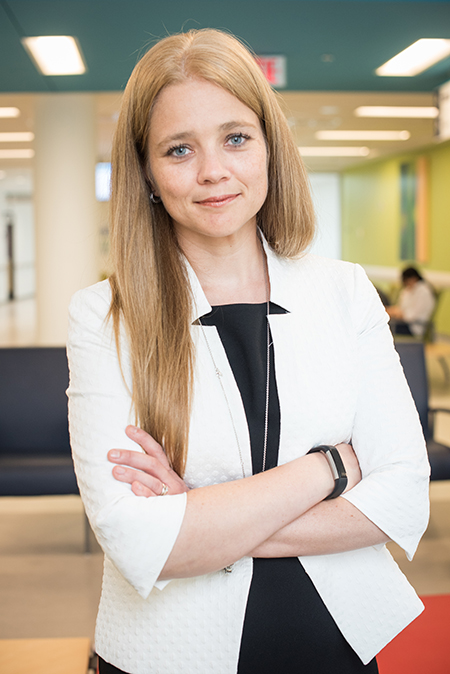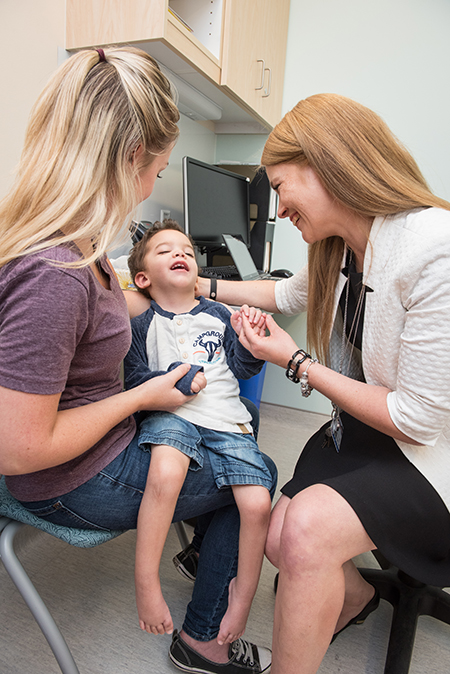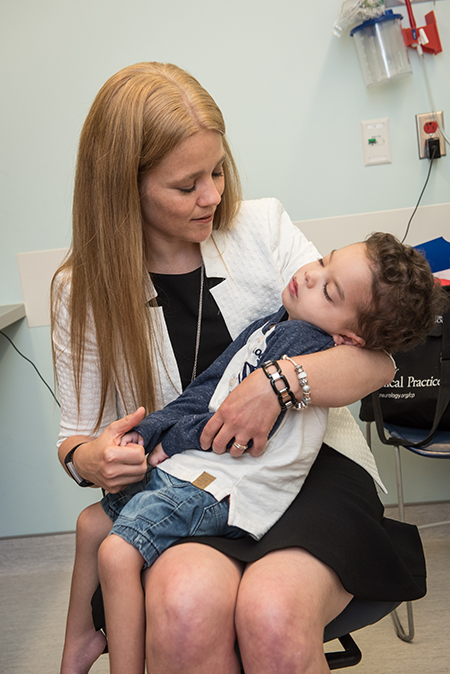Doc Talk: Dr Geneviève Bernard
Friday, September 29, 2017
Since publishing this article, little Raphaël has succumbed to his disease. He, alongside all the other young patients affected, is a true source of inspiration for all the researchers who continue to push boundaries to find a cure.
With the help of the families, Dr. Bernard is advancing research that helps treat and cure as many children as possible. But she needs your help.



What does a good day look like for you?
At work, it’s when I know I’ve made a difference, either when a parent leaves the hospital feeling better than when they came in, or when one of my little patients gives me a hug. At home, it’s seeing my kids blow me kisses through the window or the support I get from my husband. These meaningful, real relationships bring me so much joy. What do you hope you’ll be remembered for? I don’t expect to be remembered! But if that were to happen, I hope I’m remembered in a positive way. Mostly, I’d like to know I made a contribution through my work but it doesn’t need to be attributed to me personally. What’s the secret to your youthful appearance? Hair dye! My hair is almost completely white, and it’s been that way for a long time. As for the rest, I think I’ve just been blessed with good genes. Tell us something funny about yourself. I can’t dance. An elephant in a tutu would be more graceful than me! That’s what I told my daughter’s ballet teacher when she was recruiting parents to dance in a scene in The Nutcracker. She wouldn’t believe me and insisted I audition. Four of us auditioned for four roles and they didn’t cast me! But I thought it was a good way to show my kids that failure is a part of life and what’s important is trying your best.